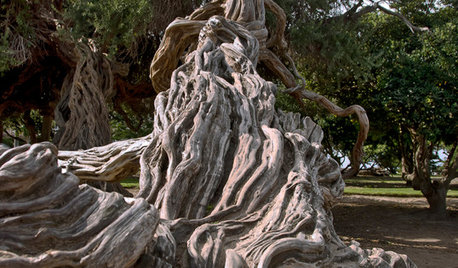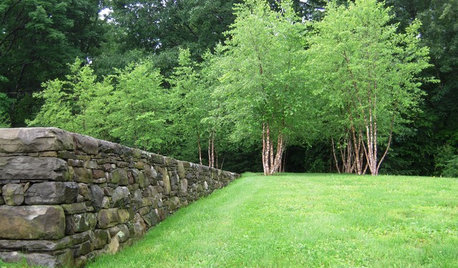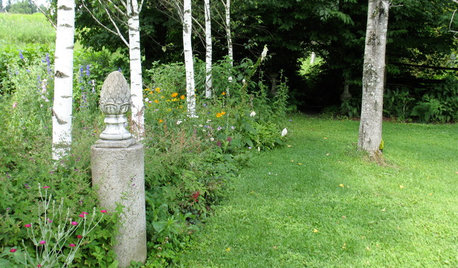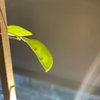Willow Tree Rooting Hormones
j.shuford
14 years ago
Related Stories

ARCHITECTURERoots of Style: The Eclectic American Foursquare
The turn-of-the-20th-century style transitioned U.S. residential architecture from the Victorian era to the modern age
Full Story
GARDENING GUIDESGreat Design Tree: Australian Tea Tree
A living sculpture with an unmistakable appearance, this coastal native creates an intriguing landscape scene
Full Story
FALL GARDENING6 Trees You'll Fall For
Don’t put down that spade! Autumn is the perfect time for planting these trees
Full Story
GARDENING GUIDESWhen and How to Plant a Tree, and Why You Should
Trees add beauty while benefiting the environment. Learn the right way to plant one
Full Story
FALL GARDENING11 Trees for Brilliant Fall Color
Give your landscape the quintessential look of autumn with the red, orange and yellow leaves of these standouts
Full Story
GARDENING GUIDES5 Best-Behaved Trees to Grace a Patio
Big enough for shade but small enough for easy care, these amiable trees mind their manners in a modest outdoor space
Full Story
CHRISTMASReal vs. Fake: How to Choose the Right Christmas Tree
Pitting flexibility and ease against cost and the environment can leave anyone flummoxed. This Christmas tree breakdown can help
Full Story
LANDSCAPE DESIGNFlood-Tolerant Native Trees for Soggy Soil
Swampy sites, floodplains, even standing water ... if you've got a soggy landscape, these trees are for you
Full Story
LANDSCAPE DESIGN7 Great Trees for Summer Shade and Fall Color
These landscape-pro faves straddle the seasons beautifully. Could one enhance your own yard?
Full Story
WINTER GARDENINGHow to Help Your Trees Weather a Storm
Seeing trees safely through winter storms means choosing the right species, siting them carefully and paying attention during the tempests
Full StoryMore Discussions







jean001
brandon7 TN_zone7
Related Professionals
West Milford Landscape Architects & Landscape Designers · San Juan Landscape Architects & Landscape Designers · East Patchogue Landscape Architects & Landscape Designers · Apollo Beach Landscape Contractors · Bellefontaine Neighbors Landscape Contractors · College Park Landscape Contractors · Long Beach Landscape Contractors · Norwalk Landscape Contractors · Palatine Landscape Contractors · Vermilion Landscape Contractors · Charlotte Fence Contractors · Chicago Heights Fence Contractors · Towson Fence Contractors · Whittier Fence Contractors · Zachary Fence Contractorsgardengal48 (PNW Z8/9)
albert_135 39.17°N 119.76°W 4695ft.
gardengal48 (PNW Z8/9)
albert_135 39.17°N 119.76°W 4695ft.
taxonomist
lurk_and_kibitz
struwwelpeter
albert_135 39.17°N 119.76°W 4695ft.
struwwelpeter
struwwelpeter
pineresin
albert_135 39.17°N 119.76°W 4695ft.
struwwelpeter
taxonomist
struwwelpeter
albert_135 39.17°N 119.76°W 4695ft.
albert_135 39.17°N 119.76°W 4695ft.
albert_135 39.17°N 119.76°W 4695ft.
wood7932